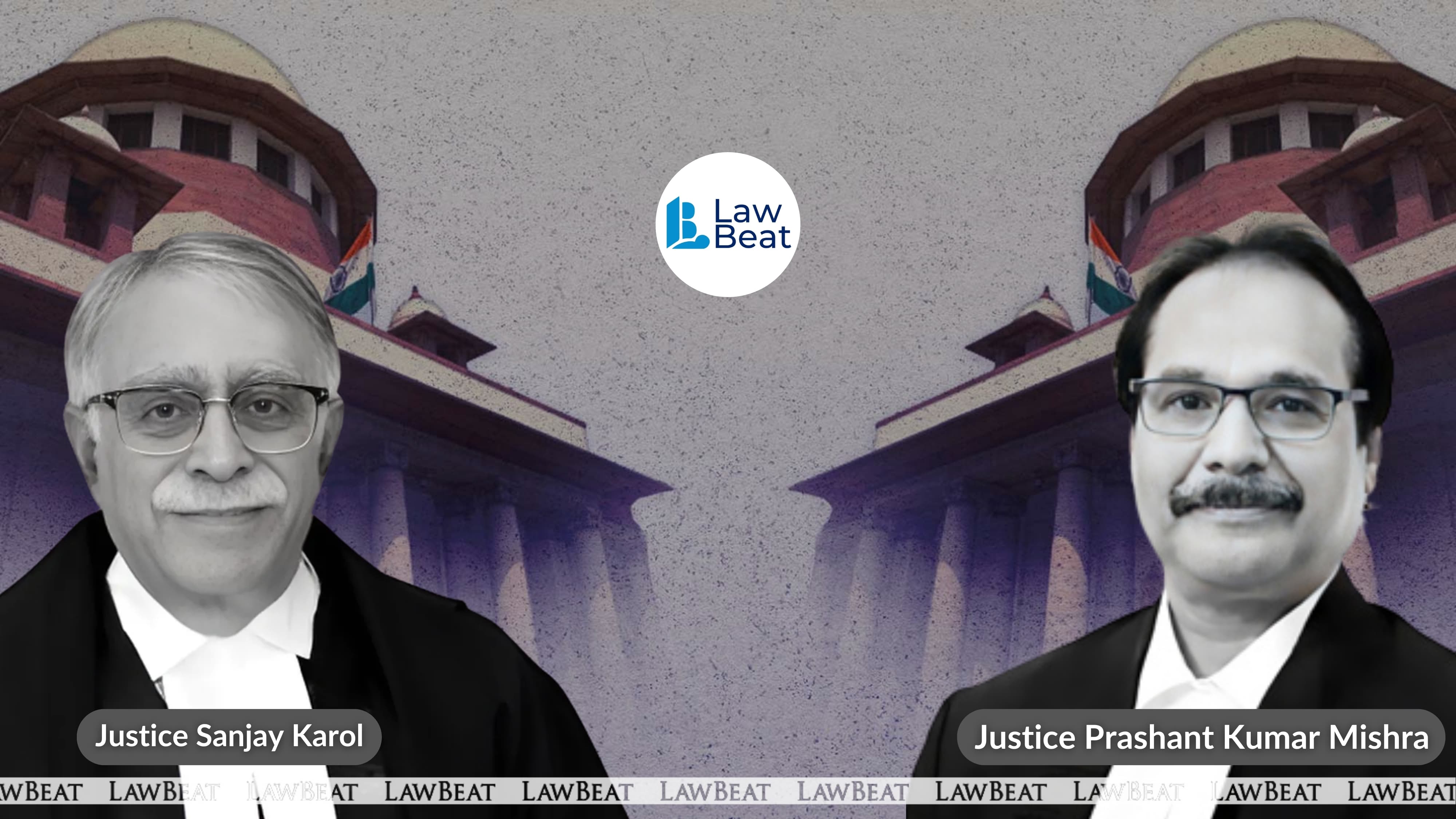Casting Doubt Upon Trial Court's Findings Not Within Immediate Purview Under S.368 CrPC, Can't Be Justified: SC

Till and such time, the finding of the Trial Court is examined independently by the High Court, and proven to be incorrect, it has to be taken as the position in law, Court said
The Supreme Court has on April 21, 2025 said when an accused person applies to the appellate court for suspension of sentence and succeeds in getting the court to make an order in his favour, what gets stayed is only the execution of the sentence and nothing more, the sentence remains and is only, not acted upon.
A bench of Justices Sanjay Karol and Prashant Kumar Mishra said, in suspending the sentence, there has to be a recording of reasons, which, of course, can only be possible after due consideration while emphasising the difference in consideration of the matter under Section 374 CrPC and Section 389 CrPC.
In this regard, the court relied upon the case of Kashmira Singh Vs State of Punjab (1977) and Afjal Ansari Vs State of UP (2024).
The court herein examined the issue only limited to the correctness and legality of the exercise of power under Section 389, Code of Criminal Procedure, 1973, on an appeal challenging Gujarat High Court's decision of suspending 20 year jail term of the respondent-accused in a POCSO case.
The mother of the minor victim through her counsel submitted suspension of sentence is the exception and not the rule. Reliance was placed on Shivani Tyagi Vs State of UP (2024) in this regard.
It was also contended that the facts considered by the High Court that the victim had run away with the accused and hence commenced a physical relationship between the two was contrary to the record and the findings of the Trial Court; instead, they met first time in 2019 when the victim was only eleven years of age, and he has been harassing her since then.
Further, the finding regarding the proof of age of the victim being suspect, was contrary to law. In this regard, reference was made to Sections 34 of the POCSO Act and 94 of the Juvenile Justice (Care and Protection of Children) Act, 2015.
"In its conclusion necessarily then, the victim had to be a minor. Whether or not the finding regarding the age of the victim is correct or not, or the manner in which was sought to be proved before the Trial Court, was in accordance with the law or not, is a question that is open for consideration in the jurisdiction under Section 374 CrPC as may be provided therein, and not under Section 389 CrPC," the bench said while examining purview of Section 389 CrPC, 1973.
The court also emphasised that till and such time, the finding of the Trial Court is examined independently by the High Court, and proven to be incorrect, it has to be taken as the position in law.
"So, at the present moment, it is proven that respondent-accused has committed the offences for which he stands convicted, subject to confirmation or setting aside by the High Court in the pending appeal. Considering this, and also the nature of offence on one hand, and his age on the other, in the attending facts and circumstances, we are of the considered view that the High Court ought not to have suspended the sentence as was imposed by the Trial Court," the bench noted.
The court emphasised on the judicious use of this power being the path to be adopted by the Courts, as held in Angana Vs State of Rajasthan (2009), and also the said exercise not being at the cost of ‘legitimate public aspirations’.
It directed the respondent-accused to surrender before the competent authority forthwith. The court also clarified that if the appeal pending before the High Court is not heard in eighteen months, appellant would be at liberty to approach the High Court seeking regular bail.
Case Title: Lilaben v. State of Gujarat & Anr.
